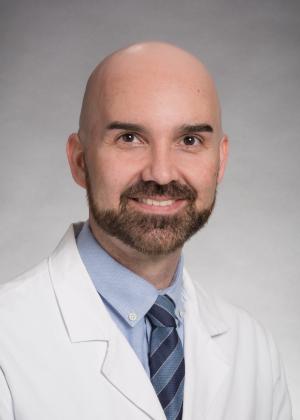Please join us in congratulating Simpson Lab student researchers, Jessica…
Dr. Cory Simpson Receives ASCI Young Physician-Scientist Award
Originally published to the UW Department of Dermatology website on Jan. 26, 2024.
UW Dermatology is proud to announce that Cory Simpson, MD, PhD, Assistant Professor and Principal Investigator for the Simpson Lab, has been selected to receive the American Society for Clinical Investigation’s (ASCI) Young Physician-Scientist Award (YPSA)! Dr. Simpson is among 52 awardees to receive this significant recognition from the ASCI — one of the oldest and most esteemed nonprofit honor societies of physician-scientists.

The ASCI Young Physician-Scientist Awards recognize physician-scientists who are early in their first faculty appointment, have successfully obtained grant funding, and have made notable achievements in their research.
As an awardee, Dr. Simpson will participate in the AP/ASCI/APSA Joint Meeting in Chicago, April 4-7, 2024, with opportunities to connect with accomplished peer, midcareer, and senior physician-scientists. The YPSA also provides virtual networking opportunities including panel discussions, peer review groups, and other career development and mentorship opportunities throughout this year and next.
“I am very grateful to the ASCI for their long support of the clinician-investigator pipeline. Beyond this recognition, the ASCI provides YPSA recipients access to career development activities over the next two years that are aimed to support early-stage physician-scientists, many of whom share my goal of building a bench-to-bedside research program.”
Please join us in congratulating Dr. Simpson on his significant achievement!
View Full List Of 2024 Awardees
Award Nomination
As a physician-scientist Assistant Professor, Cory Simpson, MD, PhD, is building his lab at the intersection of cell biology, genetics, and dermatology. His thesis work in the MD/PhD program at Northwestern optimized an organotypic skin model to define novel functions of cell-cell adhesion in epidermal differentiation and disease. This motivated him to pursue dermatology training via the Physician-Scientist track at the University of Pennsylvania, where he established a sub-specialty clinic for genetic and autoimmune blistering disorders. During his postdoc, he honed new skills in live microscopy to elucidate the role of organelle dynamics and autophagy in keratinocyte maturation and obtained career development awards from the Dermatology Foundation and NIH, which he leveraged to obtain a faculty position.
At the University of Washington, Dr. Simpson directs a weekly referral clinic for blistering diseases, which synergizes with his lab’s focus on modeling these disorders using organoid skin. Treating both autoimmune and genetic pathologies, he is acutely aware that while molecular therapies exist for most immunologic diseases, we lack comparable rationally designed medications for inherited skin disorders.
Though modern DNA sequencing allows the identification of causative mutations for many skin fragility syndromes, a genetic diagnosis rarely points to a proven treatment for patients. This results from an incomplete understanding of the downstream molecular effects of pathogenic mutations and insufficient drug development for rare dermatologic disorders. Employing CRISPR/Cas9 to generate human keratinocytes harboring disease-linked mutations, Dr. Simpson’s group grows these engineered cells in their organotypic model to replicate epidermal pathology in vitro, providing a scalable source of diseased tissue to generate mechanistic data, which they can validate in patient biopsies. Combining live 3D tissue confocal microscopy, fluorescent physiologic sensors, and laser-controlled optogenetic tools, his research program aims to delineate the pathologic mechanisms driving inherited skin blistering disorders, design innovative therapeutic strategies, and translate their work into much-needed treatments for orphan dermatologic diseases.
This Post Has 0 Comments